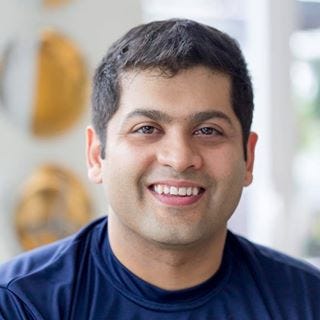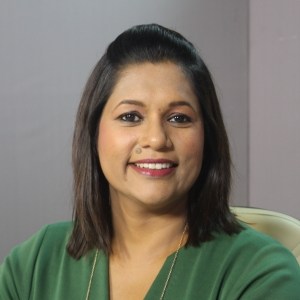Gone are the days of one and done (part 2)

In the first part of this article, I described how the days of “one and done” in education are long gone, with learning turning into a lifelong endeavor. Given the myriad options to learn at different places, times and using different modes — experiential workshops, online courses, instructional videos and micro credentials to name just a few — the future of education looks vastly different than what most people recognize. As a result, some bold thinkers might ask, “is college actually necessary then? Is there any value to it?” My answer is an unequivocal “yes,” but with some caveats and conditions.
FOUNDATIONAL SKILLS
If you ask me, the opportunity to develop foundational skills is the ONLY point of attending university. Of course, starting on the path to developing domain expertise can begin in college but that certainly isn’t the only way to becoming a specialist. My cousin, for example, majored in physics and minored in French literature at college. When he graduated, he started a university-branded clothing company with a friend he met in his first year dorm and then worked as a management consultant. While neither his science training nor his exposure to foreign literature has been used directly in his career, the foundation he developed — the ability to analyze data, work with abstract concepts, focus on intersections of ideas, develop a cogent argument — has enabled him to build a successful career in entrepreneurship and management advisory.
 “Anything is possible. I started my career as a junior engineer in a 150,000-person company in India and went on to become a consultant, banker and entrepreneur on four continents. I wasn’t afraid to embrace new geographies, cultures or challenges because I knew that hard work, passion for relentless learning and the openness to evolve could see me through anything. Today, I want to ‘embibe’ that same fearlessness in every student and working citizen of India.”
“Anything is possible. I started my career as a junior engineer in a 150,000-person company in India and went on to become a consultant, banker and entrepreneur on four continents. I wasn’t afraid to embrace new geographies, cultures or challenges because I knew that hard work, passion for relentless learning and the openness to evolve could see me through anything. Today, I want to ‘embibe’ that same fearlessness in every student and working citizen of India.”
— Aditi Avasthi, Founder and CEO, Embibe, an education technology company in which Reliance Industries is betting big, with an investment of US$185 million
The purpose of college is not to teach you what to think. Instead, college should prepare you to face an unpredictable future, where you learn how to think, collaborate, make an argument, defend a position, recognize your errors and figure out how to course correct. You should learn how to make decisions using frameworks, data and logic. Hopefully you also develop “adulting” skills such as managing time, accepting the consequences of your decisions and actions, being responsive and accountable, finishing projects that don’t have specific incentives tied to them, showing empathy, and cooking yourself a nutritious meal. And while you will learn how to understand, develop and manage rules-based processes, to future-proof your career, you need to develop the mindset to go beyond and use your brain to build connections and develop innovations that require critical thinking and a human perspective.
Consider the real-life case of twins Surabhi and Sugandh Gupta of Mumbai who majored in the classics (think Greek, Latin and philosophy) at the University of Richmond in the United States. While full time students, they completed internships, became leaders in various campus clubs and were even selected to speak at their university’s commencement exercises. Throughout summers in college and even after graduating, they completed short programs in blockchain, Internet of Things (IoT), and data science in places as far flung as Israel, South Africa and Germany, as well as online, from the comfort of their home.
 Sugandh and Surabhi Gupta, Co-founders of SpiderTwin Solutions
Sugandh and Surabhi Gupta, Co-founders of SpiderTwin Solutions
Today they are the co-founders of SpiderTwin Solutions, a Mumbai-based deep technology solutions company that serves clients around the world. Both women credit their liberal arts focus and practical experiences as giving them the courage to regularly throw themselves into unfamiliar territory and emerge the better for it. “The liberal arts is everything — it instills a sense of curiosity, integrity, humility and inquisitiveness. We wouldn’t change our college experience for anything; the perspective it offers is invaluable,” says Sugandh.
HALF LIFE CRISIS
Any parent who believes that mastering C++ and bagging a 95% in an undergraduate computer science degree will set their child on a guaranteed path for lifetime career success is sadly mistaken. According to John Seely Denning and Professor Peter Brown, authors of A New Culture of Learning, “the half-life of a learned skill is five years. This means that much of what you learned 10 years ago is obsolete and half of what you learned five years ago is irrelevant.” With programming languages morphing every two to three years, C++ offers an important starting point, but certainly not an ending point, for a career as a developer. That computer science student will be better served by also developing a strong base in English, math, critical reasoning and logical thinking alongside honing skills such as public speaking, negotiations and interpersonal communications. That way she will be prepared to learn ANY programming language, data architecture paradigm or mobile platform that emerges in the future.
 “If I had to do it all over again, I would have studied history and math, instead of finance, during college at New York University (NYU). As an entrepreneur with a growing team, manufacturing facilities across the country, investors around the world and customers who expect regular innovation, I frequently tap my reservoir of communication, negotiation and problem-solving skills to fuel our engine of growth. While I value the financial modeling skills I gained at NYU and at Wharton during my MBA, I would have been better prepared to manage the demands I face as a leader if I had pursued a more broad-based education during my college years.”
“If I had to do it all over again, I would have studied history and math, instead of finance, during college at New York University (NYU). As an entrepreneur with a growing team, manufacturing facilities across the country, investors around the world and customers who expect regular innovation, I frequently tap my reservoir of communication, negotiation and problem-solving skills to fuel our engine of growth. While I value the financial modeling skills I gained at NYU and at Wharton during my MBA, I would have been better prepared to manage the demands I face as a leader if I had pursued a more broad-based education during my college years.”
— Rohan Mirchandani, Co-founder and CEO Drums Foods, the venture-funded company behind India’s wildly popular Epigamia Greek Yogurt brand
EMBRACE THE UNKNOWN
The very shape of learning has and will continue to change dramatically as technological capabilities develop at warp speed. Having the gumption to build a solid foundation at university and then giving yourself the permission to keep learning along the road of life offers multiple shots for reinvention.
 Education is the kindling of a flame, not the filling of a vessel. — Socrates (Photo by Fancycrave.com from Pexel)
Education is the kindling of a flame, not the filling of a vessel. — Socrates (Photo by Fancycrave.com from Pexel)
With each shift in career, each additional chunk of knowledge and each milestone experience, your appreciation of the world around you grows, not linearly, but exponentially. And then, by knowing how to take experiences and opportunities from the personal to the interpersonal to societies, you will develop a systems-based approach. This will allow you to understand human experiences, interpret and contextualize technical outcomes and leave a legacy as someone who could elegantly bring together expertise with broad-based empathy. And that is a currency worth safeguarding.
